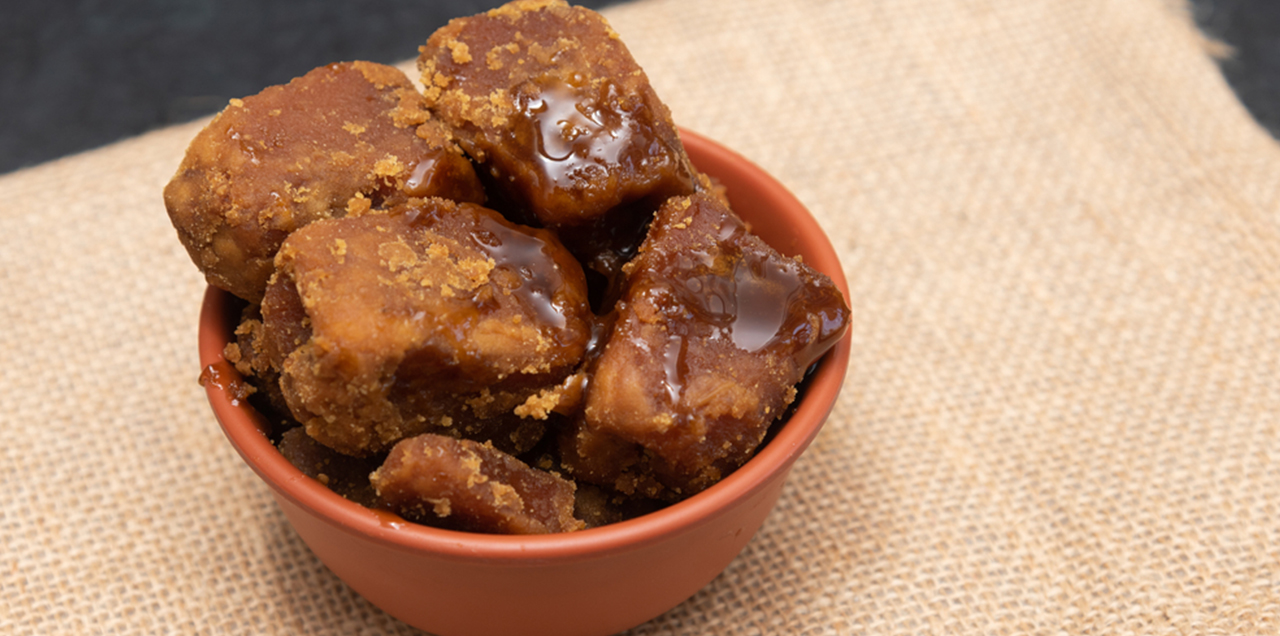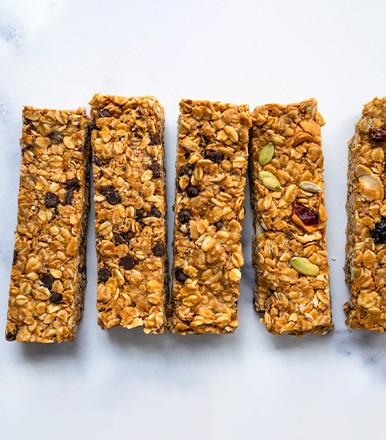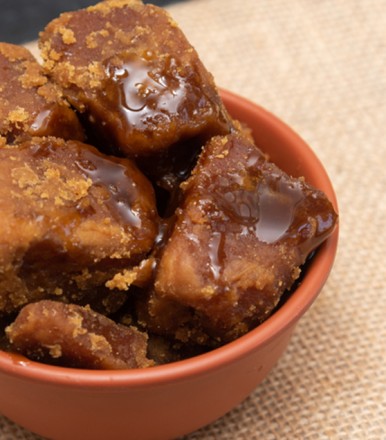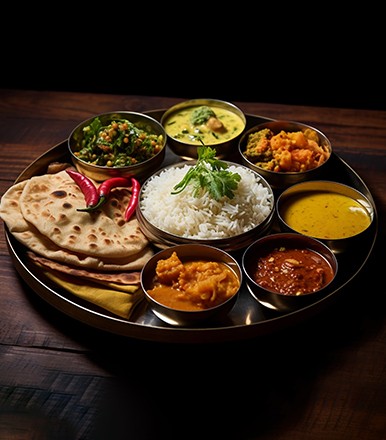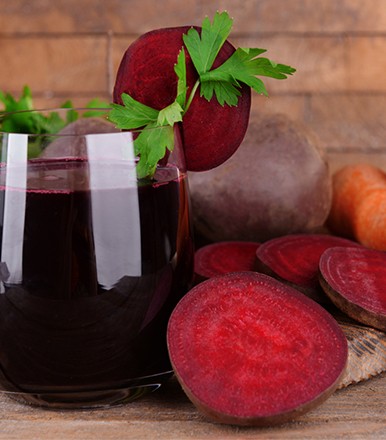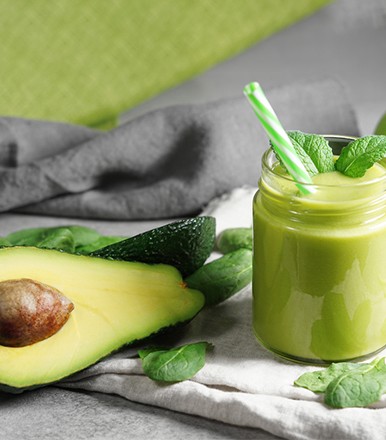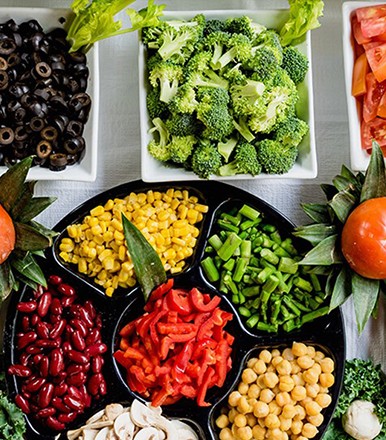I discovered jaggery during a backpacking trip through southern India three years ago, and it completely changed my perspective on natural sweeteners. One taste of this golden goodness, and I was hooked! Let me share what makes this traditional sweetener so special.
What Is Jaggery and How Is It Made?
Jaggery is far more than just unrefined sugar – it's a traditional sweetener with a rich heritage and complex flavor profile.
Outside Chennai, I witnessed the fascinating traditional production process:
- Local farmers crush fresh sugarcane in wooden presses
- The sweet juice collects in metal containers
- This juice simmers in massive pans (3 feet across!)
- Workers carefully skim impurities from the surface
- After hours of patient cooking, the liquid transforms into a golden-brown concentrate
- When cooled, it hardens into blocks or cones of varying sizes
What impressed me most? Zero chemicals, zero processing plants – just fire, metal, and time-honored techniques passed through generations.
The jaggery world is diverse! Depending on the region, you'll discover:
- Sugarcane jaggery – the most common variety with a rich molasses note
- Palm jaggery from Kerala – with an irresistible caramel-like flavor
- Coconut jaggery – more intense and distinctive
- Colors ranging from light golden (like honey) to deep brown (resembling molasses)
The Ayurvedic Perspective on Jaggery
While staying with a host family in Kerala, their 80-something grandmother – sharp as a tack and a walking encyclopedia of Ayurvedic knowledge – introduced me to jaggery's traditional benefits.
According to Ayurvedic wisdom:
- Jaggery creates warmth in the body, unlike white sugar which has a cooling effect
- It supports "agni" (digestive fire) when consumed in small amounts after meals
- Jaggery contains "complete" nutrients compared to the "empty" nature of refined sugar
Ayurveda classifies people according to three doshas (energy types):
- Vata (air and space elements)
- Pitta (fire and water elements)
- Kapha (earth and water elements)
Jaggery particularly benefits those with Vata or Kapha imbalances but might aggravate Pitta types, especially during hot weather.
Health Benefits of Jaggery According to Ayurveda
My host grandmother had a jaggery remedy for practically everything:
For Respiratory Health:
A mixture of jaggery, black pepper, and herbs helped soothe my throat during monsoon-induced colds.
For Digestive Support:
A small piece after meals or dissolved in warm water in the morning promotes healthy digestion and prevents constipation.
For Women's Health:
Village women believe jaggery enhances stamina and helps with menstrual health due to its iron content.
For Joint Health:
Mixed with medicinal oils, jaggery was used by locals to ease joint pain and improve mobility.
The key insight? These weren’t fancy supplements – just small amounts incorporated into daily routines, like food-based medicine.
Modern Nutritional Profile of Jaggery
My nutritionist friend Sarah shared that jaggery contains comparable calories to white sugar – around 380 calories per 100g. But the difference lies in the minerals:
| Mineral | White Sugar | Jaggery |
|---|---|---|
| Iron | 0mg | 3–11mg |
| Magnesium | 0mg | 70–90mg |
| Potassium | 0mg | 1050mg |
| Manganese | 0mg | 0.2–0.5mg |
How to Consume Jaggery the Ayurvedic Way
After months of experimentation, here are practical ways to enjoy jaggery:
- Morning Energizer: Hot water with jaggery and lemon juice for a refreshing start to the day.
- Culinary Uses: Adds depth to Indian curries and dishes like butter chicken.
- Afternoon Snack: Pair with almonds for a wholesome, energy-boosting combo.
- Buy Quality: Opt for organic jaggery from trusted sources to avoid chemical-laced products.
Who Should Avoid or Limit Jaggery?
- Diabetics: Jaggery still affects blood sugar levels – moderation is key.
- Weight Watchers: Calorically similar to sugar, it should be consumed sparingly.
- Pregnancy: Iron-rich but not a substitute for medical supplements – consult your doctor.
- Sensitive Stomachs: Monitor reactions like heartburn or discomfort when consuming on an empty stomach.
Conclusion:
Let’s be realistic – jaggery isn’t a miracle superfood. But when used in moderation, it has clear advantages over refined sugar:
- Offers minerals and digestive support missing in white sugar
- Aligns with traditional food wisdom and daily wellness practices
- Connects us to cultural roots and holistic living
Ready to experience this golden goodness yourself? Hello Fitness Magazine has just added a carefully selected range to our online store – including traditional blocks and convenient powder forms, all organic and produced using time-honored methods.
Check out Hello Fitness Magazine. There is never a wrong time to go on a fitness quest. Contact us and allow us to assist you in leading a better lifestyle. Follow us on Instagram. We share the best Health & Fitness related Articles for information based on healthy eating, health and fitness recommendations, health problems and their solutions, human body fitness, and much more.




